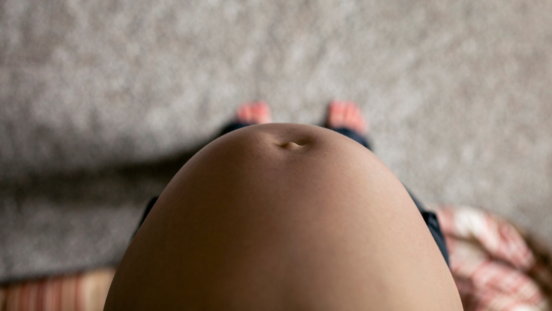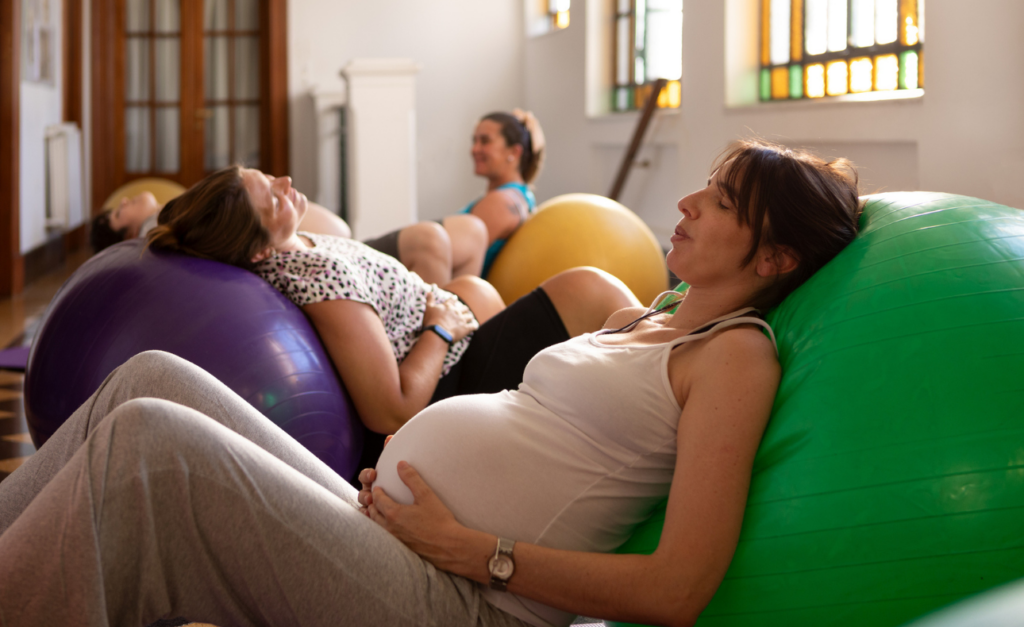The best exercise for YOUR pregnancy

Keeping active during this time of your life has a whole lot of benefits for you and your bub.
First: everyone is different!
Being pregnant is physically demanding in itself, so having a reasonable level of fitness throughout your pregnancy is a good idea – but as with anything to do with this time of your life, there are things to consider.
The rule of thumb – backed by research – shows that exercise while expecting is not only safe, but beneficial, too.
Your body is undergoing lots of changes now – more than ever – and general advice is that you can continue doing whatever exercise you were doing before, with some modifications.
It’s advised that you only take up new routines, especially in the first trimester, once you’ve talked to your GP or healthcare nurse.
It’s common to be extremely tried and possibly nauseous in the first 12 or so weeks, but once you’re in your second trimester and your energy levels have improved, you can benefit from staying active and exercising during your pregnancy.
The benefits of physical activity while pregnant
As well as having a positive impact on your general sense of wellbeing, exercising when pregnant may increase your energy levels and your fitness, too.
This is not to suggest that you set huge, new fitness goals, but staying on top of your health and wellbeing now may also help once you’ve given birth.
Remember not to compare yourself to others, to go at your own level/pace, and do what works for you.
10 reasons to exercise when you’re expecting
- Easing of lower-back pain and leg cramps;
- Maintaining and improving posture helps support the spine and reduces back strain;
- Smaller gain of body fat;
- Improved sleep and management of insomnia;
- Reduced risk of diabetes;
- Improved circulation;
- Reduced risk of varicose veins;
- Stress relief;
- Better ability to cope with labour; and
- Faster recovery after giving birth.

There are obviously certain exercises that are not recommended during pregnancy (think: horse riding, skiing, ice hockey, gymnastics – unless these were your sports beforehand!). And as each woman’s pregnancy is different, any more vigorous fitness plans should always be discussed with your medical professional.
This guide for mums or mums-to-be does not replace your family doctor or obstetrician in any way.
Before you start exercising
You’re pregnant and you feel well enough to exercise. Yippee! Here’s what you need to consider before your throw yourself back into you regular exercise, or want to try something new:
- Have you seen you obstetrician or family doctor?
- It’s a great idea to talk to your medical team first. Discuss with them any fears or concerns you may have along with any previous or existing medical conditions they may be unaware of.
Individual considerations
We are all different and pregnant affects us in different ways. Do not compare yourself to other women at the same stage as you.
- Individuals will differ in what they are capable of completing and what exercise they can enjoy. Remember to listen to your own body and only exercise when you feel healthy, energetic and safe. If you do not feel like exercising then don’t.
Heat and pregnancy
We’re fortunate to live in a sunny climate, which has many benefits but the heat can also be an issue when you’re expecting a baby.
- Heat stress is especially dangerous in the first trimester to both mother and baby. Dehydration can trigger a premature labour and therefore exercise or physical activity should be avoided in hot, humid or poorly ventilated areas. During any exercise or activity wear cool, loose-fitting clothing and drink plenty of hydrating fluids. Water is always the best choice.

Changing position
A yoga position that you loved might not feel as good when you’re pregnant; your might get breathless on a walk your’ve done a hundred times. As your baby grows and your body accommodates your little lodger, you need to tune in and be aware of when things don’t make you feel good.
- Lying on your back can block or slowdown blood flow and should be avoided in the second and third trimester. Roll to the side and eliminate the exercise if any of the following occur while lying on your back, even during the first trimester: dizziness, nausea, shortness of breath, spots before eyes, tingling fingers, feeling of suffocating or general discomfort.
- Standing in one spot for long periods in the second and third trimester can also reduce the flow of blood to the foetus.
Balance and coordination during pregnancy
Something you might not have considered when you’re expecting is that as your baby grows and your body changes shape, your centre of gravity changes too!
- During the second and third trimester your centre of gravity moves forward, affecting balance. Coordination will also often be adversely affected.
- Blood pressure drops in the second trimester; this has an additional impact on balance especially when moving quickly. Activities that may threaten balance are probably best avoided during the second and third trimester.

Joint health and Relaxin
You might know that joints appear to soften as they loosen during pregnancy. It’s not just the parts of your body that work extra hard during labour and birth, it’s all the joints. Here’s what you need to know:
- Relaxin is a hormone released during pregnancy which loosens joints. This will increase your risk of injury if you’re not careful, especially if a joint is under load during exercise or while lifting weights.
- Stretching should not be taken beyond a comfortable range; this especially important in the second and third trimester.

Things to be careful of when exercising while pregnant
As mentioned, exercising when pregnant has many physical benefits as well as being good for overall wellbeiing. However, there several warning signs to be aware of. If any of the following present during exercise, the activity must be discontinued:
- straining;
- becoming excessively fatigued;
- breathlessness, dizziness and faintness;
- nausea;
- feeling of illness;
- headache;
- fever;
- muscle weakness;
- chest pain or tightness, rapid heart rate or heart palpitations;
- swelling of the face, hands or feet, calf pain or swelling;
- back pain;
- pubic pain, vaginal bleeding, amniotic fluid leakage, contractions, cramping in the lower abdomen;
- walking difficulties; or
- insufficient weight gain or an unusual change in the baby’s movements.
Exercising after pregnancy
Listen to your nurse or hospital physio who will likely advise pelvic floor exercises in the early days and weeks after giving birth. Your recovery time will depend very much on your own personal experience, so don’t rush back to exercise immediately. (Most mums won’t want to anyway!)
- Many of the changes that occur to a women’s body during pregnancy continue until approximately six weeks postpartum (post birth). If you are less than six weeks postpartum it may be best to wait to get back in a fitness routine.
Once you’ve had your six-week check-up with your GP, and discussed your plans with your health professionals then you are ready to gradually reintroduce a more normal pre-pregnancy exercise regime




